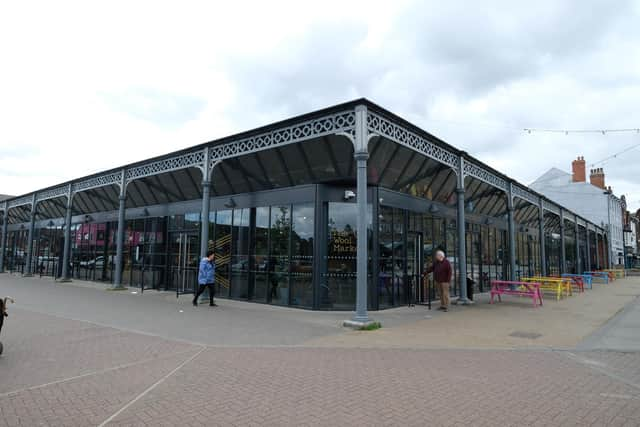Doncaster Wool Market: Traders at historic Yorkshire market face 56 per cent increase on electricity bills
Last week, traders at Doncaster’s Wool Market received a letter informing them that their electricity bills would rise from £0.25 to £0.39p/kw.
The 56 per cent rise is the latest in a series of increased cost implemented by Market Asset Management (MAM) which took ownership of Doncaster and Mexborough markets in 2019.
Advertisement
Hide AdAdvertisement
Hide AdMAM added VAT charges onto traders’ bills across the market earlier this year, while traders in the main market saw a rent increase of 10 per cent.


Existing Wool Market traders were asked to accept a new contract which would eventually lead to rent charges of 20 per cent of their turnover.
Traders said the rise could result in annual rent of £40,000 to £70,000 plus additional VAT.
A Market Asset Management spokesperson said: “We’re aware that energy costs for any business are a concern at present. Market Asset Management is charged, based on metered usage, by Doncaster Council. This charge is then passed on to tenants at the same rate. The recent rise in costs to traders at Doncaster Wool Market reflect a rising unit-price from suppliers.
Advertisement
Hide AdAdvertisement
Hide Ad“Market Asset Management charges traders ‘at cost’ and we do not pass on any of the supplier’s ‘standing charges’. We would encourage any businesses with concerns to raise it with our teams and we will work with them to explain the situation.
“We have been working closely with partners to undertake significant programme of work and regeneration at Doncaster. All expenditures are in line with fully costed plans and any outstanding payments will be made in line with relevant agreements.”
In 2020, one year after Doncaster Council sold the city’s markets to MAM, it gave the company £910,000 due to financial pressures related to Covid-19. The company has began to see profit across the markets over the past year and a major restoration of the city’s Corn Exchange is underway.
Doncaster Market currently has a stall occupancy rate of around 85 per cent, which has risen from 77 per cent while it was under council management. MAM continues to owe £638,000 to various creditors.